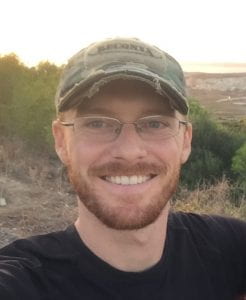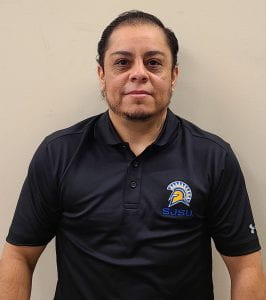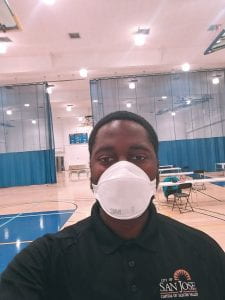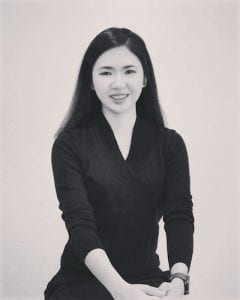After earning her MFA in graphic design from the California Institute of the Arts, Eileen Hsu found herself hungry for a new avenue to apply her artistic skills.
“I am a process-oriented person, so I just try to take solid and big steps in life with faith that such an approach will take me to an interesting destination,” Hsu says. That destination turned out to be SJSU’s MS in transportation management (MSTM) program through the Mineta Transportation Institute (MTI).
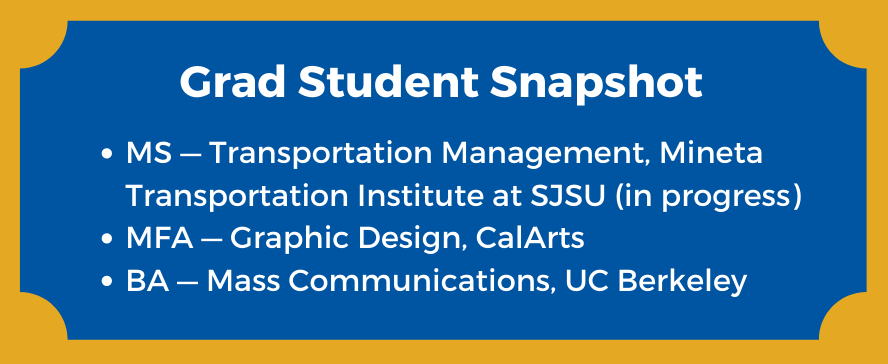 “As a Graphic Designer at LA Metro and as a huge proponent of shared mobility and mass transit, I decided to pursue the MTI transportation management master’s degree out of sheer fascination and the urge to be a more integral contributor at work,” Hsu says. “At first, I wondered if I may be out-of-place coming from the arts, but in time, tremendous applicability between the two disciplines of art and transportation emerged.”
“As a Graphic Designer at LA Metro and as a huge proponent of shared mobility and mass transit, I decided to pursue the MTI transportation management master’s degree out of sheer fascination and the urge to be a more integral contributor at work,” Hsu says. “At first, I wondered if I may be out-of-place coming from the arts, but in time, tremendous applicability between the two disciplines of art and transportation emerged.”
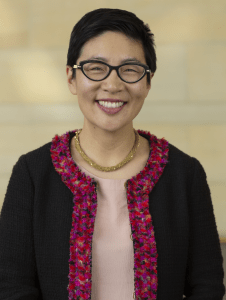
Eileen Hsu.
Image credit: ©2020 Los Angeles County Metropolitan Transportation Authority (LACMTA)
Hsu views artists as “conceptual synthesizers” who draw connections between the different domains that comprise our interdisciplinary world. She has thoroughly embraced the intersections between her arts background and her current immersion in the realm of transit. These intersections emerged while she was developing content, illustration, and publication design for the Metro’s 10-year strategic plan; conducting user-experience mapping and qualitative research on rider experiences to identify service needs; and boosting civic engagement via creative public outreach programs. Hsu notes that transportation is “the nexus of many social issues, government partnerships, and professional practices.” Public art overlaps well with these domains.
“I have expanded beyond painting canvases to painting murals in alleys to increase pedestrian throughput. A flowing thoroughfare naturally improves public safety,” Hsu says. She aptly describes public art as “a launchpad for commencing dialogue” among community members who, upon encountering these installations, are moved to ask questions about the complex policies and social issues that affect them. Simply stated, art is a powerful catalyst for civic engagement. This truth underlies Hsu’s work and study.
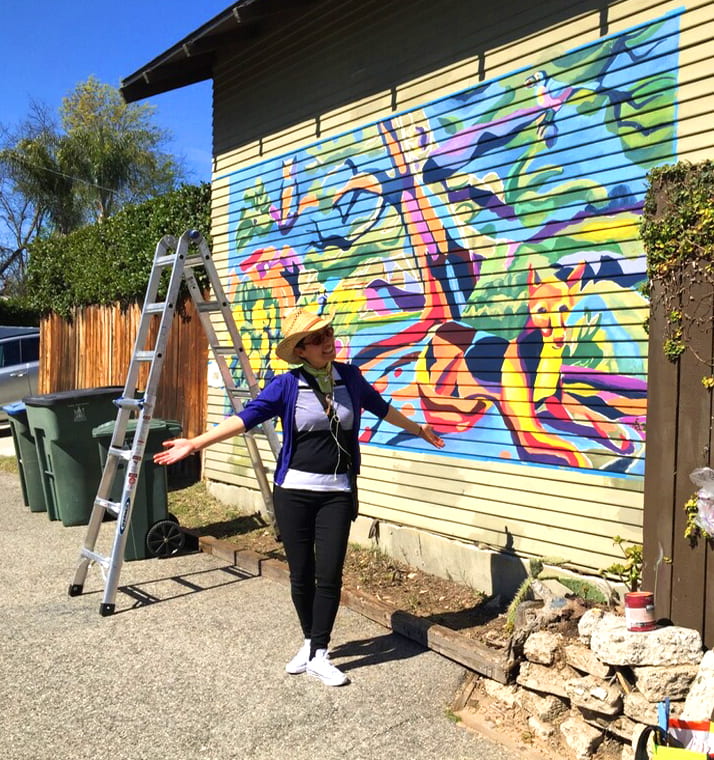
Hsu believes in the power of public art, including murals, to spark civic engagement and discourse.
Since the COVID-19 pandemic upended the basics of daily life, Hsu found herself “designing in the abstract” without her usual engagement with public transit. “Under-appreciated until now, my daily commute between home and the office on Metro was a regular ethnographic study, which I miss and value. The ridership demographic and experience is always fluctuating. Observations reveal new user needs…I miss the daily connection with the pulse of onboard culture. At the same time, I don’t undervalue the communication design work that I must currently deliver for Metro: transit faces unprecedented challenges today, which require the cooperation of both staff and the public, to ensure a healthful and safe trip.”
Hsu expects to graduate from the MSTM program in December 2021. “The program continuously astounds me with its rewards of learning and knowledge, professors who are experienced and passionate about their disciplines, and classmates who are a self-selecting team of ambitious transportation professionals, many of whose employers expressly recommend the MTI MS program,” she says, citing Dr. Asha Weinstein Agrawal and Dr. Michelle Waldron as key supporters in the department. A working professional, Hsu finds that her MSTM coursework nicely compounds the learning she engages in at work.
“Prior to Metro, I practiced graphic design for the LA County Museum of Art and various design firms, often focusing on public works and arts projects,” says Hsu. “For each course project that I undertake, I consult relevant experts at Metro, who are supportive of this academic pursuit. The [MSTM] coursework enables me to be a better communications partner to any internal department, informs my design with greater richness and intelligence, and helps me better advance mobility programs for Los Angeles County.”

